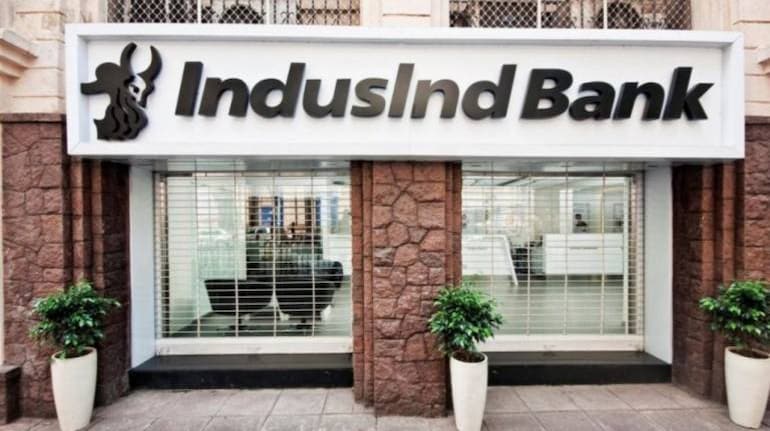

On the day Romesh Sobti's term as IndusInd Bank's Managing Director and Chief Executive Officer ended after 12 years of service, the bank's shares tanked 30 percent.
It wasn't only due to the panic triggered by the coronavirus outbreak. The bank's stock has been falling for a while. Just to give a perspective, in the last one year, the share price fell by over 86 percent—from Rs 1,684 apiece to Rs 235.60 (52-week low). The shares have recovered to some extent since then and are now trading at Rs 301 apiece.
Also Read | Romesh Sobti's stint at IndusInd Bank comes to an end, Sumanth Kathpalia to take over
What is so wrong with the bank that the shares are taking such a consistent beating?
"This trend is beyond my analysis. I do not find any reasons why this stock should fall in this manner," said Siddharth Purohit, analyst at SMC Global securities.
Purohit's view is reflected in the third quarter earnings card of IndusInd. There are no visible stress on the balance sheet. In Q3 FY20, IndusInd reported 2.18 percent gross NPAs or Rs 4,578 crore, which, in percentage terms, is nearly flat on a sequential basis. Adding the restructured loans part, the gross NPAs come to around 2.27 percent.
The bank has a capital adequacy ratio of 15.43 percent. IndusInd's loan book too doesn't give out any major stress signals. Out of its total loan book of Rs 2,0,7413 crore, only about 46 percent comprises corporate loans. A closer look at the corporate portfolio shows a diversified book with significant exposure to large corporations (25 percent).
Corporate loan book
One of the factors possibly worrying investors could be the chances of some large accounts turning bad in IndusInd Bank's corporate book. IndusInd was one of the banks which had significant exposure to IL&FS, of around Rs 3,000 crore. With no recovery in sight, this exposure has been provided for over quarters aggressively.
The other grey area is the bank's exposure to the telecom sector. IndusInd has about Rs 3,400 crore exposure to crisis-ridden Vodafone. Telecom companies are affected by a recent Supreme Court ruling on Adjusted Gross Revenues payment.
According to Purohit, this too shall pass without harming the bank much.
"Part of the Vodafone exposure has been provided already," Purohit said. Now, what about the chunk of loans that could go wrong? IndusInd Bank has 101 accounts in special mention category accounts (SMA), of which SMA 2 (loans that are overdue between 61 to 90 days) constitute only 0.53 percent of loan book as at end of third quarter.
There is a section of analysts who point out the microfinance portfolio of IndusInd. Presently, this contributes around Rs 21,000 crore, or about 10 percent of the loan book. Much of this portfolio is acquired post the amalgamation of Bharat Financial, which was earlier known as SKS Microfinance.
"But there is no major stress in this book. Due to the current environment, there might me some delinquencies but even then, the NPA will be less than one percent," said a senior IndusInd Bank official on condition of anonymity. Analysts have had mixed views on IndusInd Bank.
Early this year, UBS in a note cautioned that IndusInd is witnessing a rise in NPAs and about a quarter of loan book could face stress in the next 15 months. But, the consensus among the analysts is that the bank is unlikely to run into a big problem in terms of NPAs except the general industry issues.
Banking analysts think the collapse of Yes Bank and its eventual hurried takeover is taking a toll on other private banks. Yes Bank was recused by a government led bail out after years of mismanagement and careless lending by former CEO, Rana Kapoor. SBI and a clutch of major private banks now hold majority stake in the bank. After Yes Bank's bailout, IndusInd Bank had deferred a meeting to raise capital through AT1 bonds.
The mood among investors and customers is of caution. "But not every bank is Yes Bank," said the officer quoted above.
Succession process
Doubts over the ability of the new leadership under Sumant Kathpalia to guide the bank too may be adding to the uncertainty, analysts said. Kathpalia has been a long-term colleague of Sobti and has been instrumental in building the bank's consumer loan book.
Insiders are confident about Kathpalia's ability to lead the charge.
"Kathpalia is a safe bet for the post. He is also excellent in execution and strategy and has been instrumental in the bank's digitalisation drive as well," said the banker quoted above.
The market may be overreacting on IndusInd Bank after the Yes Bank episode. But the challenges for Sobti's successor is certainly huge.
Analysts are keenly watching whether Kathpalia can reinstate the confidence and gain the momentum back. Sobti may continue as an advisor in the bank to make the transition smooth. Kathpalia's first task will be to get the investor confidence back.
Discover the latest business news, Sensex, and Nifty updates. Obtain Personal Finance insights, tax queries, and expert opinions on Moneycontrol or download the Moneycontrol App to stay updated!